
Today marks the 30th anniversary of the death of rock legend and LGBTQ icon Freddie Mercury. The Queen singer and songwriter passed away from AIDS-related bronchial pneumonia on November 24, 1991.
Speculation about his health had been rife in the months leading up to his death due to his gaunt appearance. However, Mercury only publicly confirmed the diagnosis the day before he died, saying: “I wish to confirm that I have AIDS… I hope everyone will join with me, my doctors and all those worldwide in the fight against this terrible disease.”
Mercury spent his final weeks at his home in Kensington, West London, surrounded by those closest to him, including his boyfriend, Jim Hutton. Although also diagonosed with HIV, Hutton himself lived until 2010, when he died from lung cancer.
Freddie Mercury and Jim Hutton appreciation tweet pic.twitter.com/Pyql70fvFG
— 🍓 kinda ia (@70SR0GER) June 9, 2020
Today’s anniversary has been marked by many online. Matthew Hodson, the chief executive of HIV information service AIDSmap, said, “AIDS broke the hearts of lovers, friends and families left behind. It devastated an entertainment industry that offered haven to gay and bi men in homophobic times. It deprived us all of a rich cultural heritage and a generation of gay men of their community elders.
How about we take this to the next level?
Our newsletter is like a refreshing cocktail (or mocktail) of LGBTQ+ entertainment and pop culture, served up with a side of eye-candy.
“AIDS is not over. 680k people died of HIV-related illnesses last year. These deaths were preventable. When HIV is treated it won’t be passed on during sex (#UequalsU). Treatment saves lives and can end this epidemic. Honour Freddie. Join the fight against this terrible disease.”
AIDS broke the hearts of lovers, friends and families left behind.
It devastated an entertainment industry that offered haven to gay and bi men in homophobic times.
It deprived us all of a rich cultural heritage and a generation of gay men of their community elders.#RememberThem pic.twitter.com/2BdW4PlEOi— Matthew Hodson (@Matthew_Hodson) November 23, 2021
Related: 20-plus rare photos reveal a hidden side of Freddie Mercury that his fans never saw
Ian Green, the CEO of the UK’s largest sexual health charity, the Terrence Higgins Trust, said that Mercury’s death, despite rumors about his health, still came as a shock to him as a young man.
“Freddie was so vibrant, so alive, so seemingly untouchable,” Green wrote in the Metro. “I vividly remember thinking: if it could happen to Freddie, it could happen to me.”
Green went on to say Mercury’s legacy extends far beyond the music he created with Queen.
“Freddie wanted his death to save others and to galvanize people across the globe in the fight against HIV. And it did. His death heightened awareness, inspired action and – as importantly – raised a huge amount of money to fund research, support those affected and to educate.”
Deborah Gold, chief executive of the National Aids Trust, also reflected on Mercury’s legacy. She told the Press Association, “He’s one of a small handful of people who is truly enormously internationally well-known, and so at the time his death had a huge impact.
“In the short period of time before he died, he was open about the fact that he had AIDS, and when those moments happen, it’s possible to grab hold of them and use them for something else.
“I think the other members of Queen and his friends really did that through their work at the Mercury Trust.”
The Mercury Trust, set up after the singer’s death, has raised and distributed over $22million to around 1,500 different projects to help tackle HIV.
Adam Lambert, who now sings with Queen on tour, also marked the anniversary by sharing a video of Mercury’s life.
View this post on Instagram
Related: Brian May was asked if he’d make a new Queen album with Adam Lambert
This weekend, the BBC will commemorate Mercury’s passing with a new documentary, The Final Act.
In it, Queen guitarist Brian May recalls his last session with Mercury at a recording studio in Montreaux, Switzerland.
“When he came in he wasn’t in a great state,” May says, of the session for the 1991 song ‘The Show Must Go On’.
“He was finding it hard to walk, even finding it hard to sit. He said, ‘Bring the vodka,’ he pours himself a shot, knocks it down and then he props himself up, knocks another vodka back and then he went for it. Those notes came out of him and I don’t know where they came from.”
May’s wife, actress Anita Dobson, recalls Mercury telling her, “‘Darling, when I can’t sing anymore I’ll just die, I’ll drop dead.’ When he’d sung all he could sing he withdrew and he got ready to die.”
Four weeks after the song’s release, and having declined to take further medication, Mercury, who is believed to have received his HIV diagnosis in 1987, died.
The Final Act’s director, James Rogan, told the Independent, “[Mercury] said he said goodbye to a lot of people, he consciously decided to stop taking any medication. At that time the medication was very complicated because it had a lot of side effects. It wasn’t what it is now. His eyes were failing. He knew that there was only one way that it was going to end. He had wanted to beat it but at that time there was still no real prospect of a cure. That was the tragedy of it.”
Effective medication for HIV arrived in the mid-90s. Today, those who are diagnosed and keep to their medication regime (which can now include a once-every-two-month injection), can expect to live a normal lifespan. If they remain virally undetectable, they also cannot pass HIV on to others.
Freddie Mercury 🖤
5th September 1946 – 24th November 1991(Photo: Shinko Music Japan) pic.twitter.com/yboPbFd17Y
— Freddie Mercury (@freddie_mercury) November 24, 2021
Don't forget to share:









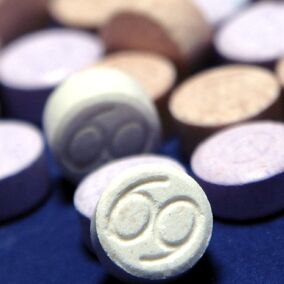









































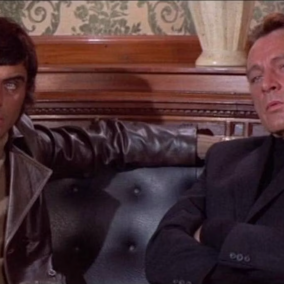
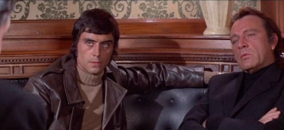


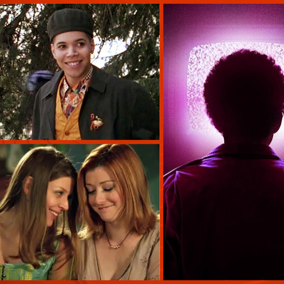





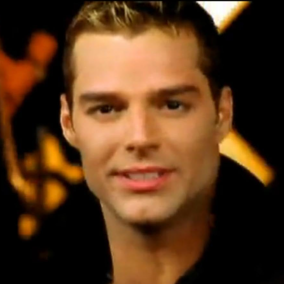









Cam
“”Mercury spent his final weeks at his home in Kensington, West London, surrounded by those closest to him, including his boyfriend, Jim Hutton.””
If you watch the trailers for Bohemian Rhapsody you would think it was a movie about a musician and the woman he was in love with.
ShiningSex
Yeah they seem to imply his bisexuality more than the truth….he was gay. Brian May said in an interview shortly after the film came out that Mercury was gay not bi. He loved this woman (as a true friend), but like many gay men….had relationships with women before COMING OUT.
ShiningSex
Mercury was gay not bi. Brian May said he was gay. He had a relationship with women previously as did MANY GAY MEN BEFORE COMING OUT. DUH!!!
Get it right.
As for Lambert in Queen now, seems pointless. No one can compare to Mercury and is just a cash grab. How embarrassing.
nicholsr
I would rather remember Freddy on this date with the celebration of his life.
mateo
All AIDS deaths are terrible but it’s the ones from the early 90s that disturb me the most: if only those people could have lived another five years, to when the Protease Inhibitors were introduced and turned so many lives around for the better.